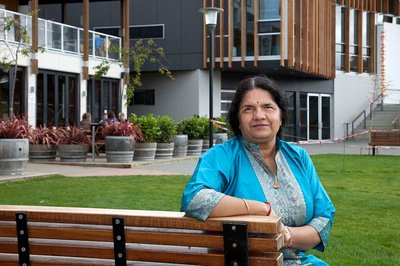
There is no right or wrong when it comes to decisions about paying pocket money.
By Dr Pushpa Wood.
Over the years, the topic I get asked about the most when talking about financial capability is pocket money. Parents often ask questions like: “Should I give pocket money to my children?”; or “At what age should I start giving pocket money to my children?”; and “How do I decide how much to give?”
These questions prompted me run a small quiz on social media. I was intrigued at the diversity of responses, varying from, “I pay them for doing the chores around the house”, to some very detailed responses with the rationale behind the decisions.
Whenever someone asks me any of the above questions, publicly or privately, my response goes something like: “What do you think – should you be giving pocket money to your children?” Then, depending on their answer, I ask why, or why not?
Usually this generates discussion around the cultural norms of the family, the value the family places around money, lessons the family wants to teach their children about money and the behaviours the family wants to encourage when it comes to managing money.
In my opinion, regardless of which side of the fence you sit on, there has to be some thought put into your decision and explained to your children accordingly. There is no right or wrong when it comes to giving or not giving pocket money. The most important thing is making sure you have an explainable rationale behind your decision and leaving room to revisit and negotiate your decision.

Westpac Massey Fin-Ed Centre director Dr Pushpa Wood.
Family values and culture play an important role
I grew up in a household where my mother did not believe in giving ‘spending money’ on a regular basis – that is, on a weekly, fortnightly or monthly basis. My mother was, and still remains, the finance minister of the household, managing the household’s money, regardless of who earned it! Her explanation was: “While you are living as part of the family, all of your expenses are paid by your family; we, as parents, make sure that you do not go without. Then what else do you need separate money for?” As a result, I also do not believe in paying children to do chores like keeping their room tidy, vacuuming the house, doing the dishes or folding washing because this is what you do when you are part of the family.
I have had numerous discussions with young people where I challenge their thinking by asking things like: “What is the relationship between a ‘right’ and a ‘responsibility’?” There is a method in my madness when I ask this question. I want the next generation to understand that every right or privilege has a minimum of two responsibilities attached. So if they can articulate the responsibilities and are prepared to fulfil their obligation, we can talk about the rights.
I can hear some groans already – it is all very boring and time consuming! Agreed. Who said being a parent is going to be a bed of roses? As parents, it is our responsibility (with help from others if needed) to prepare our children for the challenging world ahead.
Questions to ask when deciding if, when, and how much
So in short, as a parent if I was going to consider giving pocket money to my children, these are the things I would consider before making a decision:
- Age of my children – are they old enough to have a meaningful conversation about handling money, or should I be teaching them the concept of ‘delayed gratification’ first before moving onto money?
- How will I teach them about the value of money, the value of work to generate income, and managing the income that will come to them in the form of money?
- What do I expect in return from them, in addition to what they are expected to do as ‘being part of the family’?
- How will I make it a simple and fun activity to keep them engaged in long-term planning, keeping in mind that their long-term horizon might be only days or weeks?
- How will I teach them about saving for tomorrow?
- How often should I sit down with my children and explain some of the key principles of managing their money?
- How will I negotiate how my children will use their money, rather than spend their money? This will include factors such as you cultural background, your value base and your own expectations from them.
I am quite drawn to the ‘one-third’ method – children divide their pocket money into three pots, with one-third for saving, one-third for spending, and one-third for giving. This exercise will also help you to introduce your children to banking products and services later on.
Dr Pushpa Wood is the director of the Westpac Massey Fin-Ed Centre, a research and education centre based at Massey University that aims to help improve the financial wellbeing of New Zealanders.